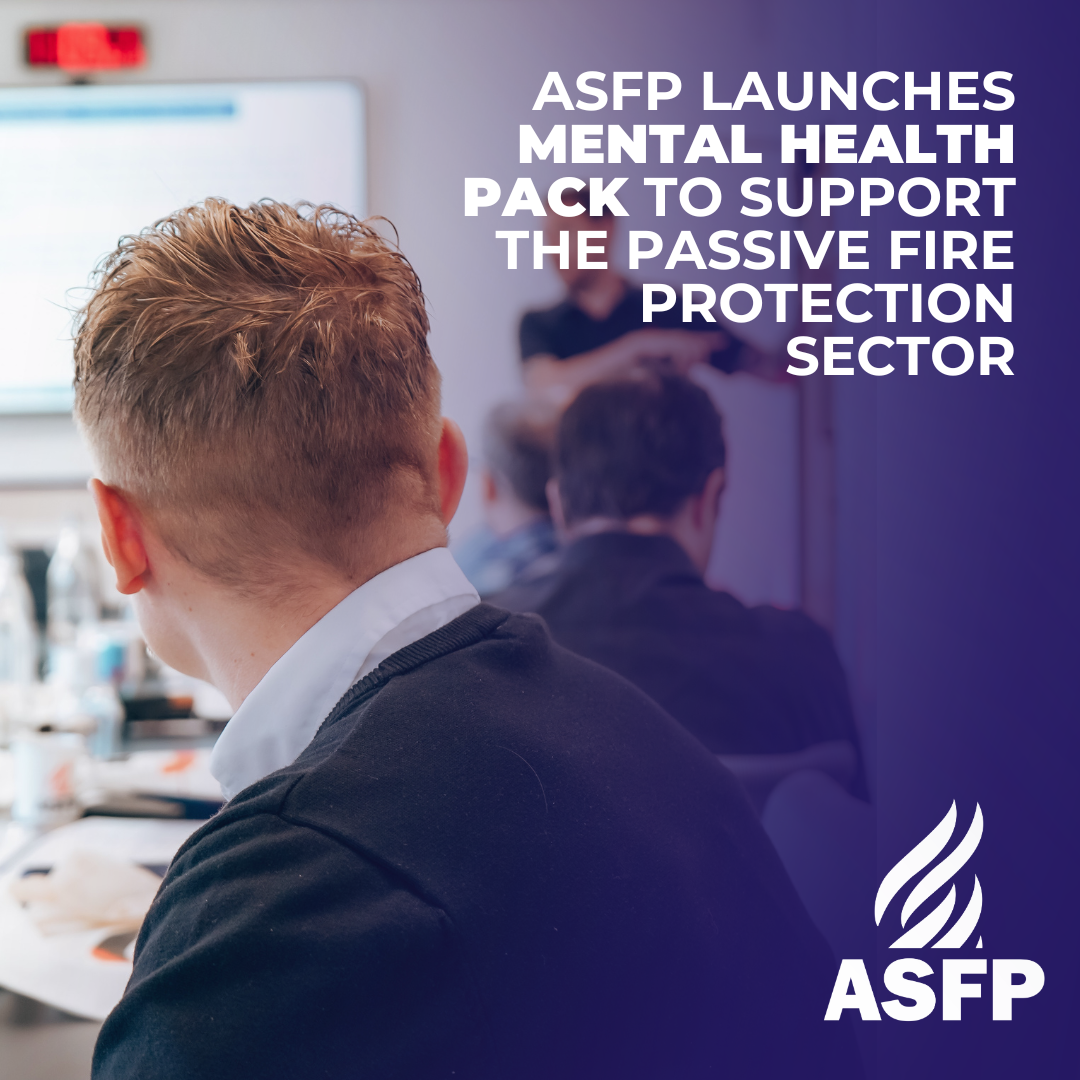ASFP Launches Mental Health Pack to Support the Passive Fire Protection Sector
23 September 2025
 The Association for Specialist Fire Protection (ASFP) has launched a new mental health pack designed to raise awareness, reduce stigma, and provide practical support for professionals working in the passive fire protection (PFP) sector. The ASFP’s pack provides strategies to support wellbeing and encourages businesses to view mental health as a core part of workplace culture, not just an afterthought. The initiative comes at a critical time. Across the wider construction industry, mental health remains a pressing concern. One of the key aims of the ASFP’s resource is to foster open, stigma-free environments. In 2019, just 33% of construction workers felt comfortable discussing mental health with colleagues. By 2022, this had risen to 53%. The ASFP hopes its guidance will continue to build on this momentum. (Source: Mates in Mind and the CIOB Survey) The pack outlines practical measures that employers in the PFP sector can take, including ensuring proper rest facilities, offering Employee Assistance Programmes (EAPs), and providing access to trained mental health first aiders. It also recommends embedding mental health into toolbox talks, inductions, and risk assessments - treating it with the same priority as physical safety. Beyond immediate support, the ASFP stresses the need for long-term cultural change. Leadership buy-in is critical, with managers encouraged to model behaviours that normalise conversations about wellbeing and promote work-life balance. As Daniel Gibson, Chair of the ASFP Young Leaders Group, explains: “Supporting mental health in construction isn’t just compassionate – it’s an investment in long-term success and innovation”. The pack also signposts to key organisations such as Mates in Mind, the Lighthouse Club, and Building Mental Health, which provide training, helplines, and resources specifically tailored to construction workers. Adam Shipstone, ASFP Head of Training and qualified mental health first aider, added: “Only collectively can we do something to combat this and make people realise that it’s OK not to be OK. I am so happy to see more and more businesses recognising the need to support mental wellbeing in the workplace, and I am even happier to see the ASFP going further to try to support its members.” By launching this mental health pack, the ASFP is sending a clear message: the wellbeing of those working in the passive fire sector must be protected as carefully as their physical safety. Only by tackling stigma, providing resources, and committing to cultural change can the industry ensure a healthier, more sustainable future for its workforce. Our mental health guide is available to ASFP Members and accessible through our Member Hub. |